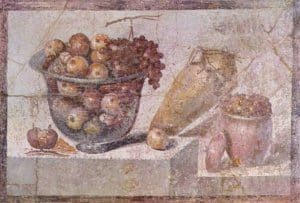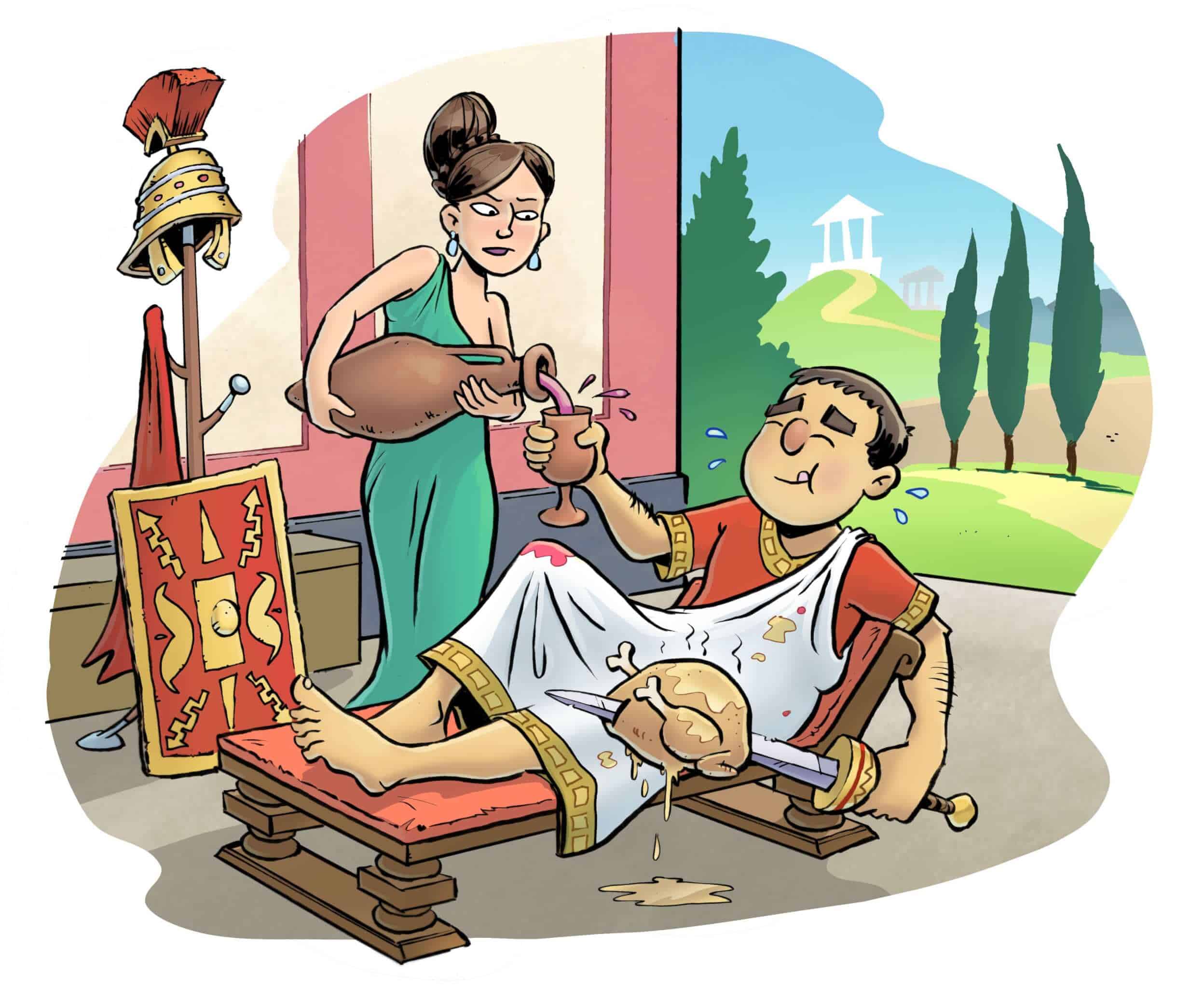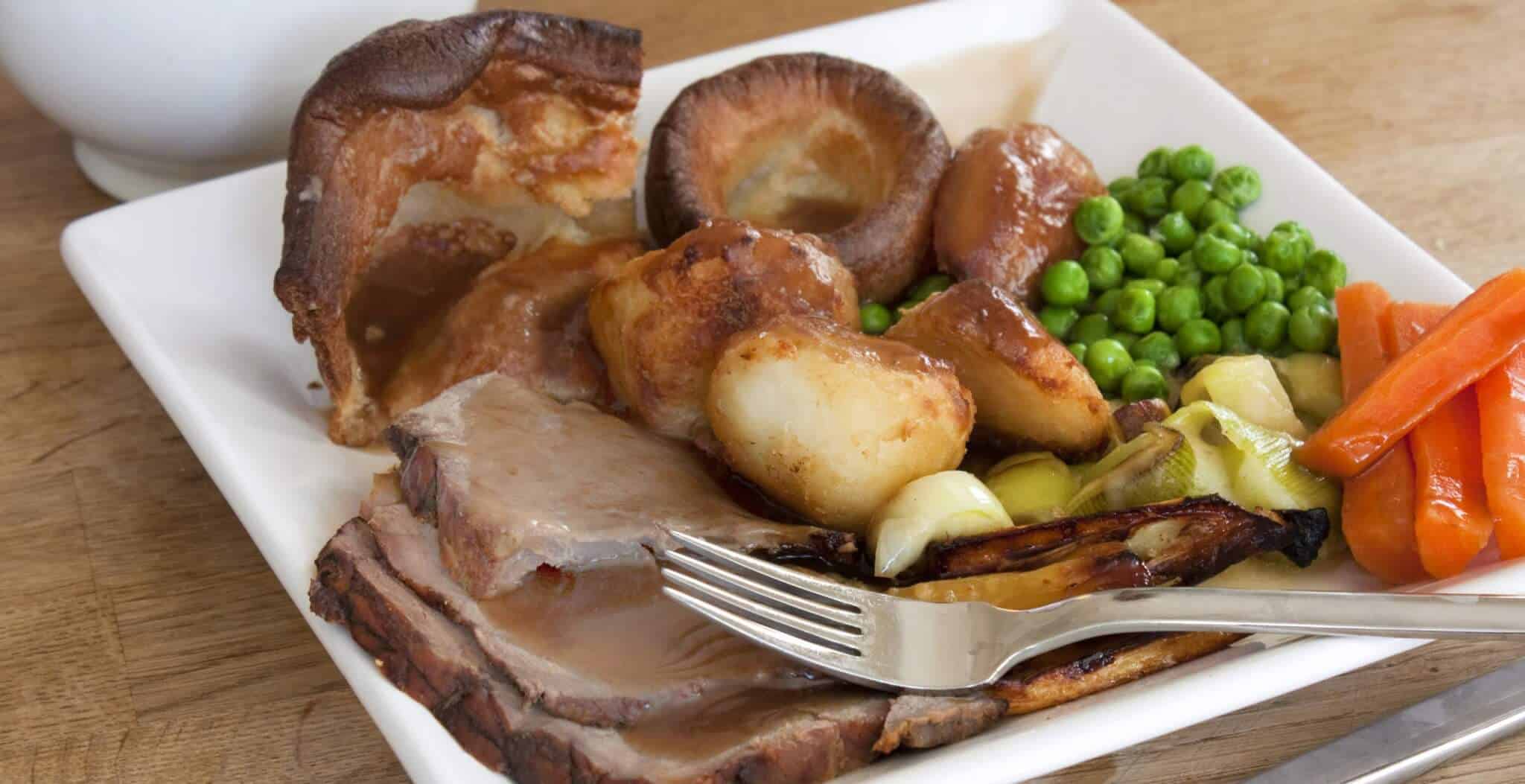In 43 AD, four Roman legions led by Senator Aulus Plautius set foot in Britain; the Roman troops were Emperor Claudius’ response to the exile of Verica, king of the Atrebates and a Roman ally. It was the dawn of that chapter in British history, almost 400 years long, known as Roman Britain.
The Roman Empire was arguably the most developed and powerful society of the time, and as Roman troops gained more ground in Britain, they spread their way of life and culture among the locals.
The innovations introduced by the Romans in Britain are countless, ranging from architecture, art and engineering to law and society. Among the sectors of British culture that were most influenced by the Romans, but nonetheless among the least talked about, were agriculture and food.

When the Roman Empire occupied Britain, Rome already had an extremely well developed agricultural system and elaborate culinary traditions. Roman culture emphasized the importance of agriculture and rural life as a noble way of life, and the Romans had been quick to acquire the secrets of farming from other cultures they had integrated (i.e. Greeks and Etruscans). Trade of food and agricultural products reached an unprecedented scale during Roman times: the social importance of food and banquets in Roman culture is so well documented that it does not need an introduction. The agricultural traditions and culinary preferences of the Romans were the expressions of their Mediterranean background, so it comes as no surprise that when Rome occupied Britain, bringing its culinary and agricultural traditions along, it changed British food and agriculture forever. But how exactly did the Romans change British food?
The influence of Roman food in Britain began even before the Roman occupation: in fact, trade between the two countries was already flourishing, and the Celtic British elites had a taste for some ‘exotic’ products coming from the Empire, such as wine and olive oil. But it was only after the conquest, when an increasingly large Roman community moved to Britain, that the agricultural and culinary landscape of the country changed radically.

Among the new fruits, a special chapter must be dedicated to the grape: in fact, it is generally agreed that the Romans introduced the grape and created the wine industry in Britain. Pre-Roman interest for wine is confirmed by the presence of wine amphorae dating back to before the Roman conquest. However, imported wine was expensive and following the Roman conquest, there were large numbers of Romans living in Britain unwilling to leave their favourite drink behind. This need for cheaper wine, coupled with the winemaking and viticultural knowledge of the Romans, led to an increased desire for domestic wine and the introduction of winemaking in Britain.

Seafood was another important element of the Roman diet that became increasingly popular in Britain following the Roman conquest. The Romans were particularly fond of shellfish, especially oysters, and some of the seafood supplies from coastal Britain became very highly prized, even in Rome. Oysters from Colchester became among the most appreciated in the Roman Empire, but oysters were also produced in other sites around Britain, as proved by the finding of oyster shell dumps dating back to Roman times.
 Still life with fishes and mussels. Roman fresco from the House of Chaste Lovers, Pompeii
Still life with fishes and mussels. Roman fresco from the House of Chaste Lovers, PompeiiHowever not everyone in Britain was influenced in the same way by the conquerors’ diet, and the degree to which one’s diet was “Romanized” depended also on the social group to which they belonged. The British elites were more influenced by the Roman way of life, and eating and drinking imported products was a way to demonstrate their higher social status. The lower classes, though influenced to a lesser degree, still benefited from the introduction of the new vegetables and fruits.
In 410 AD, after more than 400 years of domination, the Roman legions withdrew, ending Roman rule in Britain. With the departure of the Romans, Romano-British culture started to gradually disappear, along with most of the culinary traditions imported by the Romans. However the permanent changes they introduced in agriculture survived their rule, and their legacy lives on in the fruits and vegetables they first brought to Britain.







